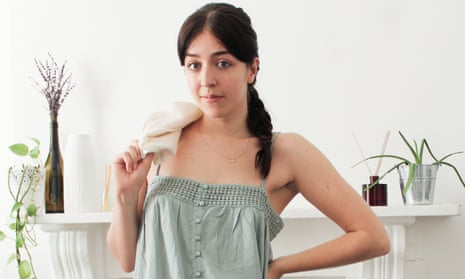Soon after lockdown started and high-street stores closed, a scheme called Lost Stock appeared, offering shoppers the chance to have a mystery box of clothing delivered to their door.
Customers provided details including their age, gender, size and clothing preferences, paid £39, and then waited several weeks for a parcel containing at least three items of clothing, which they were told would usually retail for about £70.
The goal was to sell 50,000 Lost Stock boxes by the end of the year. By September, 116,000 had been ordered.
But as the boxes arrive on customers’ doorsteps they have been dividing opinion. While some buyers have been delighted with their purchase, others say they are “disappointed” and “feeling duped” because they did not receive what they were promised.
The Lost Stock initiative was set up in spring by Cally Russell, an Edinburgh-based businessman and the founder of the fashion shopping app Mallzee, to buy up clothing produced in Bangladesh for western brands.
As the pandemic took hold, retailers including Sir Philip Green’s Arcadia, the owner of the Topshop and Dorothy Perkins chains, as well as Primark and Edinburgh Woollen Mill cancelled or suspended £2.4bn of orders from the country’s garment factories in a bid to reduce their losses.
Almost 40% of the proceeds from each £39 box, about £13, is donated to Bangladesh through the Sajida Foundation, a non-profit organisation based in the country. The donation is enough to feed a Bangladeshi family for a week.
About 60,000 boxes boxes have been delivered so far and a further 30,000 are en route to customers.
However, the contents of the Lost Stock box were a disappointment for Besma Whayeb, who writes a sustainable fashion blog. She does not think the three tops and dress she received matched the clothing preferences she indicated.
“It wasn’t what was promised and the customisability of Lost Stock was actually quite a big selling point for me,” Whayeb says.
“It was quite frustrating, it leaves me in position where I have three out of four items that I don’t particularly want and they are sat in a bag at at the back of my wardrobe.”
Other customers have complained about finding a “made in China” label in some items of clothing, or about waiting for their boxes to arrive.
Some have expressed disappointment on social media that some items in their box appeared identical to tops being sold on the website of the discount fashion and homeware retailer Matalan for less than £70.
Russell has apologised to any customers who are not satisfied with what they received, and said the firm would find a solution, such as a refund, if they got in contact.
He confirmed Lost Stock would also cancel the orders of any customers who were not willing to wait for their box.
He said the initiative had only bought cancelled stock from factories, the vast majority of which were in Bangladesh, but also purchased a small number of products from elsewhere.
“We always said in rare circumstances that we might buy stock that has been cancelled in other countries, and this has been on our website since the very start,” he says.
Russell would not disclose which high-street retailers had originally ordered the clothing purchased by Lost Stock, but said he was aware some items were available online.
“Those lines were cancelled lines and obviously that retailer has now reinstated parts of it,” he says.
Lost Stock says it has thousands of “very satisfied” customers, significantly lower return rates than most online retailers, and that 20% of customers have placed a second order.

Roberta Lee, a sustainable fashion stylist, bought a box to support the cause, and says she was “pleasantly surprised” what what she received.
“It frustrates me that people can be so negative about what they have got in the box when it was clearly outlined at the beginning that it was a response to the challenge with unpaid orders due to Covid. It wasn’t an exercise in styling and fashion,” Lee says.
Under the UK’s distance-selling regulations, Lost Stock will have to refund any customers who are not satisfied with their purchase.
When it launched the initiative, Lost Stock encouraged customers to swap any unwanted items with each other, or donate them to charity. Several Facebook groups created for the purpose show active swapping between members.
Since launch, a children’s clothing box has been added, as well as boxes containing autumn and winter clothing for adults.
Meanwhile, western brands continue to cancel orders that have already been produced in Bangladesh.
“A factory owner got in touch with us who had 270,00 pieces of knitwear cancelled by a UK retailer with no payment made,” Russell says.
“Hopefully what we have done can be a catalyst for long-term change, and can drive people to think more about the supply chain where they buy their products from and the impact that they can have.”
